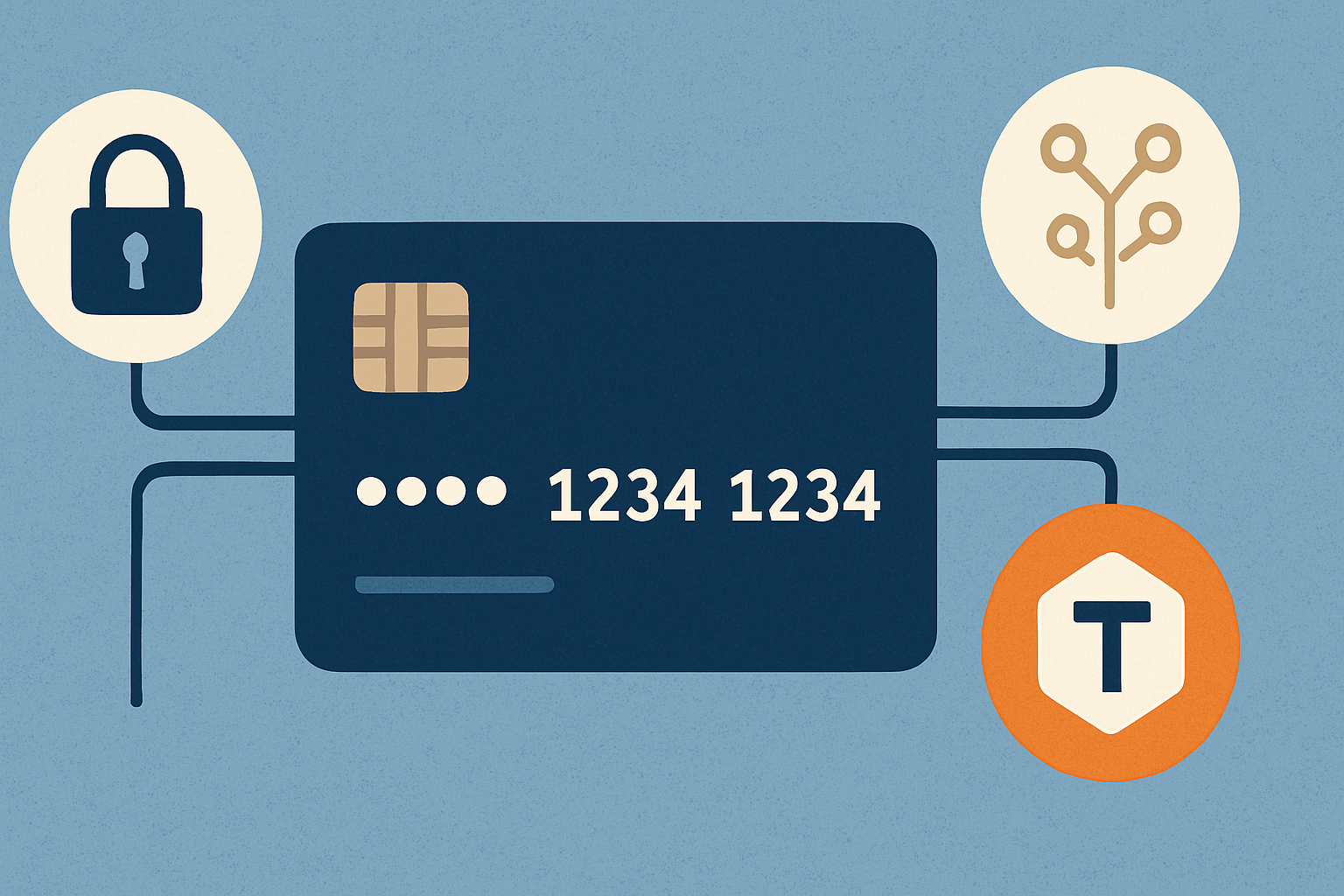Share this article
No items found.
No items found.

The definitive guide to expanding your business in LATAM.
A FREE 5-day email course that teaches you how to optimize your payment rates and simplify your operations.
Obtain the guide

Here's how tokenization works and why it's key to securing your payments without complicating the payment experience.
Tokenization is a security process used in the online payment industry to protect sensitive customer data. It involves replacing sensitive data, such as credit card numbers or account numbers, with a series of unique characters called "tokens".
In some cases, this system is also used in the protection of data linked to technologies such as blockchain or the tokenization of digital assets from the art world, real estate and even non fungible tokens (NFT).
There are different types of tokens depending on their use and structure:
Both tokenization and encryption protect sensitive information, but they work differently.
Encryption scrambles the data and requires a key to decrypt it, while tokenization replaces it directly with a value unrelated to the original. Since tokens have no intrinsic value and no direct relationship to the original data, they are useless to an attacker, even if they gain access. In many implementations, tokens are reversible, but only by authorized systems accessing the secure vault or correlation, according to the PCI DSS Information Guide.
And because it cannot be reversed, it provides an even more robust layer of security.
During a transaction, the customer's payment data is sent to a secure server, where it is replaced with a unique payment token. It is this token (and not the actual data) that is stored and used in future transactions. The actual data, on the other hand, is kept in a separate, secure environment.
An effective tokenization system is composed of several key elements:
The tokens are generated using advanced cryptographic algorithms that ensure that each one is unique, unrepeatable and, above all, secure because it does not contain sensitive information. As they are unidirectional, it is impossible to revert the token to access the original data, which adds an extra layer of protection against fraud attempts or unauthorized access.
And while some systems allow the token to be reversed in a controlled environment (such as in a secure vault), tokens do not expose the original data outside of that environment.
Tokens can be stored on merchant systems, provided they comply with appropriate security standards such as PCI DSS. However, many platforms offer external tokenization services to reduce the compliance burden. The actual data, meanwhile, is stored in a separate environment, protected by firewalls, encryption and other cybersecurity measures.
Tokenization replaces sensitive data with unique identifiers, so data leakage is not possible, because if someone accesses your information, they will not be able to do anything with it.
In markets such as Brazil, where laws such as the LGPD require the protection of personal data, tokenization becomes key to operate without risk. If implemented through a certified provider, this system not only protects sensitive information, but also significantly reduces the scope of PCI DSS compliance by minimizing the storage of actual data in the merchant's systems. In addition, it makes it easier to adapt to global regulations such as GDPR if your business operates or scales in Europe.
Tokenization enables more secure and seamless payments. When implemented correctly, it contributes to a seamless shopping experience, without unnecessary steps or interruptions. Although it does not directly reduce rejection rates, it does help prevent blockages due to suspected fraud, which avoids friction and improves user perception during the payment process.
Unlike encryption, which involves constant encoding and decoding processes, tokenization only replaces and validates data. This makes it lighter on your systems and reduces points of failure.
No need to replace your current infrastructure. Tokenization can be integrated with legacy systems, raising the level of data security and compliance without disrupting your operations.
Tokenization requires expertise in cybersecurity, server architecture and compliance. Not all companies have the internal resources to develop it on their own.
For small and medium-sized companies, the costs associated with secure servers and advanced technology may seem high. However, these expenses are balanced by the long-term benefits in terms of security and customer confidence.
With the rapid growth of e-commerce in Latin America, securing digital transactions has become a priority. Tokenization helps reduce fraud, increases trust in local platforms and enables compliance with data protection laws in emerging markets such as Mexico, Colombia, Argentina and Brazil.
Payment tokenization is more than a technological trend: it is a strategic necessity for any company that accepts digital payments in Latin America. Implementing it today means guaranteeing customer security, complying with current regulations and positioning itself as a reliable brand in the digital ecosystem.
If you are ready to guarantee the security of your payments, Rebill is your strategic ally. Our infrastructure allows us to accept payments in the main Latin American markets, integrating in less than an hour to your business.
With real human support and compatibility with the most used payment methods, we offer a complete experience for you to scale your operations without worries.
Contact us and ensure the growth of your online sales.

.avif)